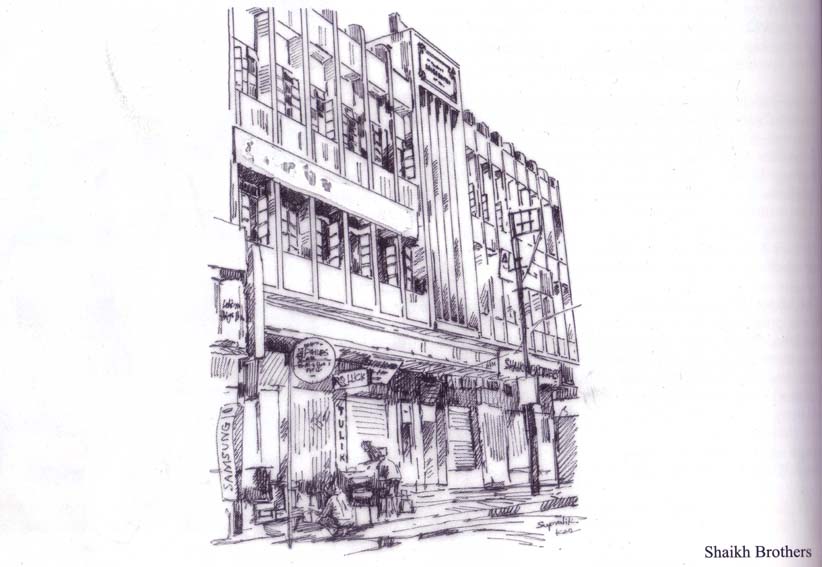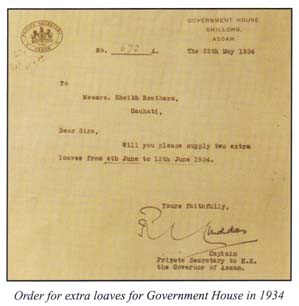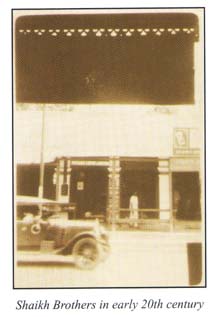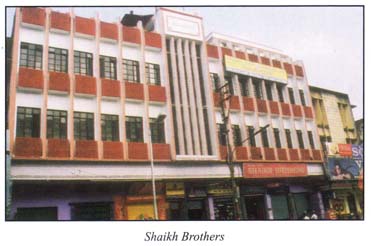| BAKING BONDS |
 |
On November 24, 1923 Johan Henry Kerr, the then British Governor of Assam based in Shillong wrote in his diary, “Today there has been no supply of bread from the Gohati bakery as the road is under repair. Local bread is too hard and sticky - Gohati bread is soft.” Another government file refers to a “sanction of Rs 380 for His Excellency’s Xmas party for which bread, biscuits and cakes are to be ordered with Gauhati Bakery immediately, with an instruction that all materials should reach the Governor House by midday, preferably by 12 noon.”
|
India’s first Prime Minister Jawaharlal Nehru too was known to be “extremely fond” of this bakery’s cheese straws. Later, during visits to Guwahati, his daughter Indira Gandhi invariably had her Z-category security personnel stand by its huge ovens as her favorite bread was baked and packed. Years may have passed since, but the appeal of the bakes and cakes of this famous Gohati Bakery, Messrs Shaikh Brothers, still sustains. It all began nearly 125 years ago when Shaikh Ghulam Ibrahim, an enterprising youth from Bengal’s Hoogly district first came to Assam to execute construction work for the Shillong-Guwahati road that was being rebuilt by Maula Baux, a well-Known contractor of those times. Ibrahim’s family was then was doing roaring business at their bakery in Calcutta’s Mirzapur Street, and so was quick to realized the potential of a bakery in Assam.
|
|
Consequently, after the family’s Calcutta bakery suffered immense losses in the wake of a plague epidemic in Bengal in the 1880s, Shaikh Ghulam Ibrahim decided to proceed to Assam. He traveled by train and streamer and party even on foot to arrive Guwahati in 1881. His first venture in Guwahati was a soda water making plant, and thereafter a bakery. His brothers Shaikh Sobiruddin and Shaikh Kabiruddin also joined him and Messrs Shaikh brothers was established in 1885.
Bakeries then were a new concept, but the brothers took inspiration from the initial success of their Calcutta bakery. In Bengal, British rule, spread of education and emergence of a neo-Babu culture had given their business a boost. Likewise in Assam, the brothers’ thought, British settlers and the gradual emergence of a middle class would provide a good market. The bakery in Guwahati however took a while to get going since the orthodox sections in town were not in favor of patronizing “Western” products. Sometimes religious taboos also raised their ugly head. All said and done though business picked up within three years and Shaikh Brothers became the talk of town.
|
|
Planters from both upper and lower Assam ensured a regular clientele. And in the 1890s Messrs Shaikh Brothers’ bread, biscuit and cakes entered the Chief Commissioner’s house (now Raj Bhawan) in Shillong. Since 1905, after JB Fuller became Lt Governor, horse-drawn carts carrying special boxes of Shaikh Brothers bakery items for the Governor House in Shillong was a daily affair. A notification appointing Messrs Shaikh Brothers as official suppliers to the Government of Assam was published in the Assam Gazette. Successive governors like John Henry Kerr, Sir Michael Keane and Robert Neil Reid became its patrons and admirers. Jnandabhiram Barooah, Tarun Ram Phookun, Rohini Chowdhury, Dr Bhubaneswar Barua, H K Barpujari and S K Barpujari were also among its regular elite patrons. With the passage of time business had to be diversified. The next generation - Shaikh Khuda Hafez, Shaikh Ali Hussain and Shaikh Sultan Hussain - - catapulted Shaikh Brothers’ to newer heights. Khuda Hafez and Ali Hussain particularly, gave their heart and soul to give shape to the shop. |
They converted the bakery into a departmental store and began to deal in textiles, hardware, shoes, medicines and general provisions. They also acquired export-import license for Westend wristwatches.
|
Before the present structure was built in the mid-1960s, Shaikh Brothers operated from an Assam-type house in the same site. Its showroom might have been separated from the workshop that was a place with big ovens and a huge chimney, by only a certain, but the bakery nevertheless conducted business in style. Wheat and cheese for its bakes came from Australia. Hoves (a type of yeast for fermentation) was imported from Belgium and cashewnuts were procured from Goa. Dry dates and raisins found their way to the shop from north India and Peshawar. Bakers in the establishment too had specific expertise. Gulu Mistri who hailed from Burma for instance was an expert in baking cheese straws, and took the recipe and mixing technique to his grave. During Christmas the shop used to be decorated to his grave. During Christmas the shop used to be decorated with baked Xmas trees and a chocolate-coated Santa Claus that children crowded to see. |
|
A bridge between the 19th and 21st century, Messrs Shaikh Brothers is an integral part of the city’s heritage. It has watched a small town grow into a thriving metropolis. The halcyon days might have passed into history, but its tradition sustains. And perhaps not many are aware today that Haji Sobiruddin Road in the Paltan Bazar area has since 1934 been so called in memory of Shaikh Sobiruddin, one of the founders of Shaikh Brothers.


